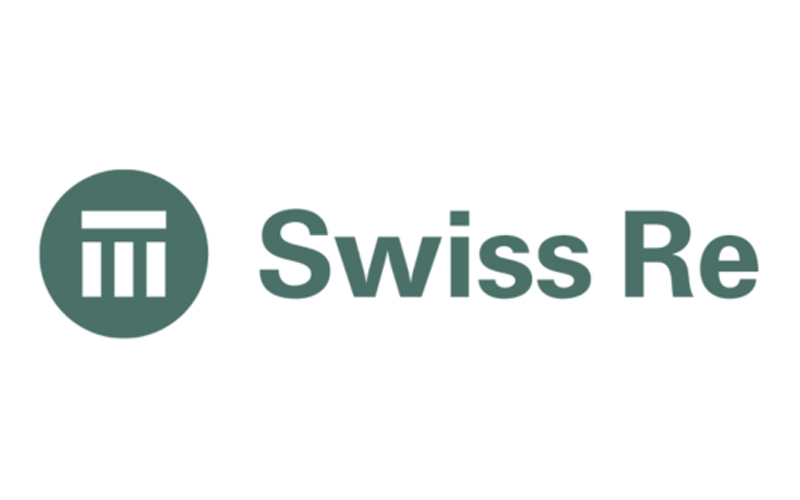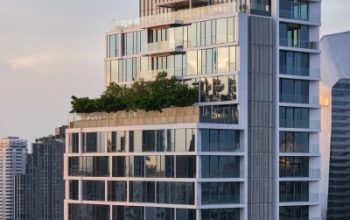- Swiss Re Foundation mengundang para wirausahawan sosial dari Indonesia, Malaysia, Singapura dan Thailand untuk turut berpartisipasi dalam Shine, program kewirausahaan sosial unggulan dari Swiss Re Foundation.
- Program ini menyediakan dana hibah dan akses langsung dengan para pimpinan Swiss Re, serta memberikan konsultasi dan pelatihan bisnis untuk membantu para wirausahawan sosial tersebut memperluas jangkauan inisiatif mereka demi mewujudkan dampak yang lebih besar.
JAKARTA – Media OutReach Newswire – 20 Mei 2024 – Untuk pertama kalinya, Swiss Re Foundation membawa program unggulannya, Shine, ke Asia Tenggara, dengan tujuan untuk menerapkan kesuksesan yang telah dicapai dari program-program Shine ke kawasan lain. Sejak peluncurannya di India pada tahun 2018, Shine telah berkembang ke Brasil, Slovakia, Afrika Selatan, Swiss, Inggris, Amerika Serikat, dan kini hadir di Asia Tenggara.
Program ini berupaya mendorong inovasi di bidang-bidang yang memiliki dampak krusial, seperti transisi Net-Zero, kesehatan dan gizi, literasi keuangan, kesejahteraan sosial dan ekonomi, pengembangan keterampilan, pertanian yang adaptif terhadap perubahan iklim, pengurangan risiko bencana, dan pemberdayaan masyarakat untuk memperkuat ketahanan wilayah pesisir. Shine terbuka bagi para wirausahawan sosial di Indonesia, Malaysia, Singapura, dan Thailand.
Swiss Re akan berkolaborasi dengan Impact Hub Kuala Lumpur sebagai mitra pelaksana dan BOOKBRIDGE sebagai mitra pembelajaran untuk program Shine di Asia Tenggara.
Mengatasi tantangan masa depan dimulai dari sekarang
Laporan terbaru dari Swiss Re Institute, yang bertajuk “Changing Climates: the heat is (still) on”, menyatakan bahwa negara-negara di kawasan Asia Pasifik berada di posisi 10 besar dalam hal kerugian ekonomi dalam bentuk persentase PDB akibat peningkatan risiko bahaya yang disebabkan oleh perubahan iklim. Thailand menjadi salah satu negara yang menunjukkan potensi dampak kerugian terbesar karena negara ini rentan terhadap risiko bencana yang semakin tinggi, khususnya akibat banjir.
“Asia Tenggara merupakan pasar yang penting bagi industri asuransi, yang ditandai dengan perpaduan dinamis antara pertumbuhan ekonomi yang cepat dan juga kerentanan terhadap situasi mendesak seperti perubahan iklim dan kesulitan akses terhadap layanan kesehatan. Perpaduan unik ini menyerukan kebutuhan akan dukungan yang lebih besar terhadap para inovator dan penggerak perubahan untuk memimpin terciptanya solusi bagi tantangan-tantangan sosial tersebut,” ujar Victor Kuk, CEO Swiss Re Asia.
Beliau menambahkan, “Berbekal kesuksesan program Shine sebelumnya di wilayah lain, ditambah lagi dengan keahlian tim Swiss Re di kawasan ini, kami yakin dengan kemampuan mereka dalam membimbing generasi wirausaha pemula dan membangun masyarakat yang tangguh.”
Informasi lebih lanjut tentang program Shine
Shine Southeast Asia membuka pendaftaran bagi para inovator sosial di Singapura, Malaysia, Indonesia, dan Thailand hingga 19 Juni 2024. Peserta yang terpilih akan menjalani program pembelajaran selama enam bulan mulai dari Januari 2025, di mana mereka akan bekerja sama dengan para ahli dan jajaran kepemimpinan Swiss Re untuk mengembangkan bisnis yang strategis dan berkelanjutan secara finansial.
Selain memperoleh bimbingan dari para ahli di Swiss Re, para wirausahawan yang terpilih juga berkesempatan untuk memenangkan pendanaan hingga SGD 40.000, atau sekitar 476 juta Rupiah (berdasarkan nilai tukar pada tanggal 17 Mei 2024), untuk mendukung pertumbuhan usaha mereka.
Untuk informasi lebih lanjut mengenai pendaftaran program ini, silakan kunjungi Swiss Re Foundation. Simak juga kisah sukses Hydrogreens Agri Solutions, wirausahawan Shine periode 2021- 2022: “From grass to glass, a greener value chain for milk.” (swissrefoundation.org)
About Swiss Re
The Swiss Re Group is one of the world’s leading providers of reinsurance, insurance and other forms of insurance-based risk transfer, working to make the world more resilient. It anticipates and manages risk – from natural catastrophes to climate change, from ageing populations to cyber crime. The aim of the Swiss Re Group is to enable society to thrive and progress, creating new opportunities and solutions for its clients. Headquartered in Zurich, Switzerland, where it was founded in 1863, the Swiss Re Group operates through a network of around 80 offices globally.
Cautionary note on forward-looking statements
Certain statements and illustrations contained herein are forward-looking. These statements (including as to plans, objectives, targets, and trends) and illustrations provide current expectations of future events based on certain assumptions and include any statement that does not directly relate to a historical fact or current fact.
Forward-looking statements typically are identified by words or phrases such as “anticipate”, “target”, “aim”, “assume”, “believe”, “continue”, “estimate”, “expect”, “foresee”, “intend”, “may increase”, “may fluctuate” and similar expressions, or by future or conditional verbs such as “will”, “should”, “would” and “could”. These forward-looking statements involve known and unknown risks, uncertainties and other factors, which may cause the Group’s actual results of operations, financial condition, solvency ratios, capital or liquidity positions or prospects to be materially different from any future results of operations, financial condition, solvency ratios, capital or liquidity positions or prospects expressed or implied by such statements or cause Swiss Re to not achieve its published targets. Such factors include, among others:
- the frequency, severity and development of insured claim events, particularly natural catastrophes, man-made disasters, pandemics, acts of terrorism or acts of war;
- mortality, morbidity and longevity experience;
- the cyclicality of the reinsurance sector;
- central bank intervention in the financial markets, trade wars or other protectionist measures relating to international trade arrangements, adverse geopolitical events, domestic political upheavals or other developments that adversely impact global economic conditions;
- increased volatility of, and/or disruption in, global capital and credit markets;
- the Group’s ability to maintain sufficient liquidity and access to capital markets, including sufficient liquidity to cover potential recapture of reinsurance agreements, early calls of debt or debt-like arrangements and collateral calls due to actual or perceived deterioration of the Group’s financial strength or otherwise;
- the Group’s inability to realise amounts on sales of securities on the Group’s balance sheet equivalent to their values recorded for accounting purposes;
- the Group’s inability to generate sufficient investment income from its investment portfolio, including as a result of fluctuations in the equity and fixed income markets, the composition of the investment portfolio or otherwise;
- changes in legislation and regulation, including changes related to environment, social and governance (“ESG”) matters or the interpretations thereof by regulators and courts, affecting the Group or its ceding companies, including as a result of comprehensive reform or shifts away from multilateral approaches to regulation of global operations;
- the Group’s ability to fully achieve one or more of its ESG or sustainability goals or to fully comply with applicable ESG or sustainability standards;
- matters negatively affecting the reputation of the Group, its board of directors or its management, including matters relating to ESG or sustainability, such as allegations of greenwashing, lack of diversity and similar allegations;
- the lowering or loss of one of the financial strength or other ratings of one or more companies in the Group, and developments adversely affecting its ability to achieve improved ratings;
- uncertainties in estimating reserves, including differences between actual claims experience and underwriting and reserving assumptions;
- policy renewal and lapse rates;
- uncertainties in estimating future claims for purposes of financial reporting, particularly with respect to large natural catastrophes and certain large man-made losses and social inflation litigation, as significant uncertainties may be involved in estimating losses from such events and preliminary estimates may be subject to change as new information becomes available;
- legal actions or regulatory investigations or actions, including in respect of industry requirements or business conduct rules of general applicability, the intensity and frequency of which may also increase as a result of social inflation;
- the outcome of tax audits, the ability to realise tax loss carryforwards and the ability to realise deferred tax assets (including by reason of the mix of earnings in a jurisdiction or deemed change of control), which could negatively impact future earnings, and the overall impact of changes in tax regimes on the Group’s business model;
- changes in accounting estimates or assumptions that affect reported amounts of assets, liabilities, revenues or expenses, including contingent assets and liabilities;
- changes in accounting standards, practices or policies, strengthening or weakening of foreign currencies;
- reforms of, or other potential changes to, benchmark reference rates;
- failure of the Group’s hedging arrangements to be effective;
- significant investments, acquisitions or dispositions, and any delays, unforeseen liabilities or other costs, lower-than-expected benefits, impairments, ratings action or other issues experienced in connection with any such transactions;
- extraordinary events affecting the Group’s clients and other counterparties, such as bankruptcies, liquidations and other credit-related events;
- changing levels of competition;
- the effects of business disruption due to terrorist attacks, cyberattacks, natural catastrophes, public health emergencies, hostilities or other events;
- limitations on the ability of the Group’s subsidiaries to pay dividends or make other distributions; and
- operational factors, including the efficacy of risk management and other internal procedures in anticipating and managing the foregoing risks.
These factors are not exhaustive. The Group operates in a continually changing environment and new risks emerge continually. Readers are cautioned not to place undue reliance on forward-looking statements. Swiss Re undertakes no obligation to publicly revise or update any forward-looking statements, whether as a result of new information, future events or otherwise.
This communication is not intended to be a recommendation to buy, sell or hold securities and does not constitute an offer for the sale of, or the solicitation of an offer to buy, securities in any jurisdiction, including the United States. Any such offer will only be made by means of a prospectus or offering memorandum, and in compliance with applicable securities laws.


















